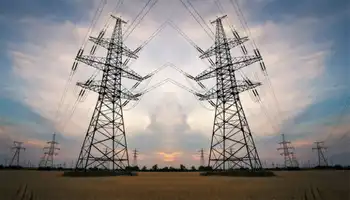Companies see dollars in consumer electricity usage
By Dallas News
Protective Relay Training - Basic
Our customized live online or in‑person group training can be delivered to your staff at your location.

- Live Online
- 12 hours Instructor-led
- Group Training Available
Some are capitalizing on millions of new residential meters installed in North Texas and elsewhere. Others, such as air-conditioning installers and cable and home security companies, are teaming lighting controls and fancy thermostats with existing service plans.
“Today there are 1.9 million homes with energy management networks” nationwide, said Bill Ablondi of Parks Associates, a Dallas market research company. “We are entering a period of pervasive growth. We estimate there will be 16.2 million by 2015.”
Parks Associates hosted the Smart Energy Summit in Austin recently. It focused on ways to find customers for such services. The three-day affair showed enthusiasm is high among corporations and entrepreneurs, who sense an emerging market. Ablondi said there were about 75 companies in the market in 2010, but now there are as many as 250, including such big names as GE, Intel, Verizon and AT&T.
Consumers, however, remain largely in the dark about the possibilities. Smart grid technologies promise to provide big gains in efficiency for electricity generators, transmitters and consumers. That means cost savings, less pollution and fewer power plants.
Integrating information technology into the electric power grid should also make it far easier to connect renewable energy sources such as wind and solar power.
The technologies should also make it possible to manage a fleet of electric cars so that they can be fueled without putting crushing demands on the system and double as available storage devices for power when parked.
But with electricity prices flat or falling they were down 11.5 percent last year in Dallas, consumers are not motivated to jump in.
“Consumers have so little interest in this space,” complained Christopher Deutschen, a senior manager with electricity retailer Direct Energy Marketing.
“They love their smart phones, but they don’t love energy,” he said. “And they don’t necessarily trust the utility.”
Vince Groff, executive director of corporate development at Cox Communications, complained that energy is too cheap in the U.S. marketplace.
“If people were paying $500 or $600 a month for electricity, they’d be pretty interested,” he said.
Oncor and other Texas electricity transmission companies have installed more than three million smart meters across the state under a mandate from the state government. The meters are providing an ocean of data to the utilities about electricity consumption, but consumers have seen little advantage.
Program to save
Several people at the conference called the meters “a better cash register” for the utilities, with customers footing the bill.
Retail electricity providers TXU Energy and Reliant, however, are now selling plans that incorporate smart meters.
The plans give consumers discounts for using more power during off-peak hours, when itÂ’s cheaper to generate and congestion on the transmission grid is lower. The approach is similar to early cellphone plans.
Reliant and TXU Energy can also use the smart meter data to send e-mail alerts to consumers when their electricity usage starts to balloon, along with recommendations on ways to conserve.
Oncor senior vice president Jim Greer said the transmission utility has been waiting for retailers to take advantage of smart meters with these kinds of rate plans.
He compared a typical consumer’s use of electricity to a grocery store customer who bought food for a month only to discover the cost when a monthly bill arrived. Smart meters, he said, will allow consumers to see what they are using — and what it costs — in real time.
Jennifer Pulliam, TXU EnergyÂ’s director of innovation, said the company offers consumers thermostats that can be programmed by the customer or the retailer to synchronize with time-of-use rates to save money.
Programmable thermostats have been around for several years, but most — 70 percent, Pulliam said — are not used to vary home temperatures during different times of day.
Customer controls
A thermostat equipped with wireless radio communications, however, can be configured remotely. TXU Energy offers thermostats that can be programmed from a smart phone.
EcoFactor, a California company partnering with Oncor, offers North Texas customers remote control of a home thermostat that ties together customer preferences, household temperatures and the weather. EcoFactor chief operating officer Eric Saltzman said the $8.99-a-month service saves customers between 20 percent and 30 percent on their heating and air-conditioning bills.
EcoFactorÂ’s thermostats operate independently of smart meters, and other companies offer similar control systems that get in the home through security or Internet services.
Ingersoll Rand, for example, owns both Schlage door locks and Trane air conditioning. The company offers remote controls for its locks and is planning to sell home energy management systems as well, said Ingersoll Rand solution management director Steve Samolinski.
“You can change the temperature on your thermostat with the Schlage link, through your Blackberry or iPhone or iPad,” he said.
Ablondi of Dallas marketer Parks Associates said energy management systems independent of smart meters would outsell the utility plans for several more years. He estimated that wireless thermostats would grow into a $1.1 billion market by 2015, and that remote-control lighting systems would equal that market.
Speaker after speaker at the conference said the key to this market, however, is raising consumer awareness of the cost savings such systems can bring — without sacrificing comfort or demanding a lot of skill.
“Most consumers don’t have a clue why we’re doing this,” said George Arnold, national coordinator for smart grid interoperability with the National Institute of Standards and Technology.











